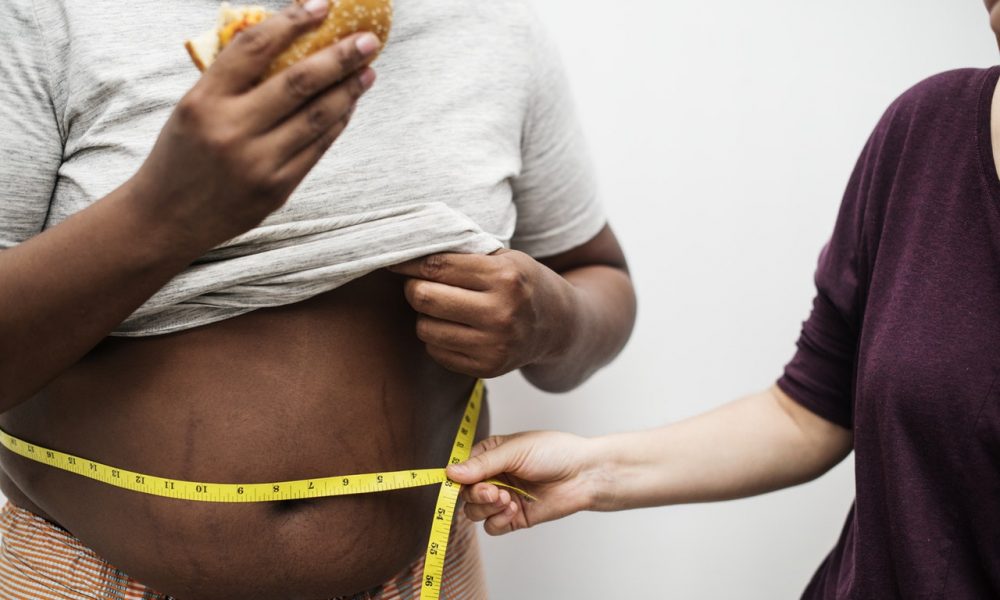
Does Weight Training Stunt a Child’s Growth?
Does Weight Training Stunt a Child’s Growth? We’ve all heard the mantra that weight training is bad for kids. According to soccer moms across America,

Many people approach weight loss by going low carb because they believe carbs are the evil culprit for storing unwanted blubber around their waist.
If you ask the average person, they’ll tell you all the horrendous things carbohydrates have done to them like making them fat, ugly, and miserable.
Unfortunately, these claims aren’t supported by any meaningful research. I can guarantee you if you’re fat, ugly, and miserable, it’s not because of potatoes or any piece of fruit.
“Wow, rude! So are you saying, low carb diets are bad?”
No, not necessarily. I will give you my personal recommendations at the end, but first let me show you the scientific evidence behind how low carb diets work, how they compare to higher carb approaches, and why carbs don’t make you fat.
Many people think carbs are bad for you because they spike insulin. This is known as the insulin model theory where it’s hypothesized that because insulin plays a role in fat storage, the key to fat loss must be to refrain from carbs and never spike insulin right?
Not quite. If this were true, all the highest carb consuming countries would be the fattest globs ever, but the opposite is true. The healthiest and leanest countries eat plenty of carbs. But enough observation, let’s look at hard science.
For starters protein and some fat sources also spike insulin, not just carbohydrates (1). That alone makes the insulin model for fat gain inconsistent as insulin can still be spiked in high amounts without carbohydrates. In fact, if insulin was the culprit, whey protein would be more fattening than cheesecake because it’s more insulinogenic.
Moreover, what carba-phobes fail to understand is that fat storage is not correlated with insulin. In fact, your body can easily store fat without insulin anyways (16).
If there’s excess calories that needs to be stored, your body will store it irrelevant of insulin levels (2). Insulin is a storage hormone, but it can only store what’s there. Blaming insulin for fat gain is like blaming your waiter for delivering you the food you ordered.
Here’s a 2017 scientific review done on carbohydrate-insulin model of obesity showing it to be misleading and false (3). This lines up consistently with scientific research throughout the years showing endless amounts of people losing fat just fine while eating carbs.
Fear mongering headlines and nutrition marketers love to play to people’s fear of carbohydrates even though carbs in themselves do not cause fat gain.
If you’re a new reader here, let me breakdown the basics of fat gain. Fat gain doesn’t happen from carbs or insulin (9). Fat gain happens when you’ve eaten more calories than your body can burn over a period of time regardless if those calories were carbs, fat, or protein.
Same thing with fat loss. Fat loss occurs when you eat less calories than you burn over time even if those calories came from carbs. (You can read more about the details behind calories in vs calories out here).
This is how low carb diets (or any diet) work. People who see success with low carb diets achieved success not because carbs are more fattening than other nutrients, but because by cutting carbs from their diet, they’re forced to eat smaller portions and/or lower calorie foods resulting in a caloric deficit.
Despite all the gossip and scandalous rumors about the ever so innocent carbohydrate, science has consistently shown calories dictate fat loss/gain not carbohydrates (4,5).
So now that it’s abundantly clear you can lose weight with or without carbs, you’re probably wondering, is there are any sort of advantages for going low carb compared to higher carb approaches when calories and protein are equal?
Let’s see what controlled studies have to say.
The main short term difference is a slightly bigger impact on early weight loss for low carb diets. Those who go low carb will likely experience more early weight loss (6). The additional weight loss is water because when you restrict carbs, you lose more glycogen which is the carbs stored in your muscles. Glycogen is bound to water, so as you lose glycogen, much of the early weight loss from low carb diets is nutrient/water loss.
Even though, this doesn’t matter in the long term, it’s still a very powerful effect of low carb diets if applied correctly. For example, I sometimes put impatient clients on low carb diets because the early drop in weight motivates them to stick their diet better.
Physiologically, it doesn’t mean much because it’s mostly just water not fat, but psychologically it can ignite motivation for people who are desperate to see the scale weight drop early.
In addition, people with metabolic issues like type 2 diabetics or obese individuals may respond to low carb diets better. In some cases, they adhere better and see better health results with the same or even independent of weight loss (17,18,19).
But newer research finds this is simply due to misreporting. Low carbers especially beginners tend to overreport their intake. They are simply eating less in the studies. This makes sense as carbs make up a higher variety of food and drinks, so simply reducing intake cuts lots of calories (23).
So unsurprisingly, any advantage for type 2 diabetics fade away in the long term (24).
Now those are just short term differences. When you look at controlled studies with longer time frames and better design, the benefits level out after a few weeks especially as people get leaner and healthier, thus being able to handle glucose better.
When looking at long term differences (which are more important), the answer is simple.
It doesn’t matter. You lose the same amount of weight and see the same health benefits thanks to the weight loss (20).
In a 2018 twelve month study, when calories are equal, low carb and low fat showed the exact same level of improvement in fasting blood glucose, blood lipids, and weight loss (7).
Another study showed that while it’s true that you burn more fat on low carb diets, you also burn more carbs on low fat diet (8). Your body burns more of what you eat. Regardless, the end result of weight loss is identical as long as calories and protein are the same.
Whenever study participants eat the same amount of calories and protein, the differences in fat/carbs don’t make a difference (10).

Then, there’s a study in 2016 which might be the best study on this topic (13). This study had 2 groups who ate equal calories and protein like some of the studies I already mentioned, but this one also had both groups strength training.
This closely replicates real world application because dieters are also exercising.
This study had one group eat low carb and the other group eat a conventional balanced diet involving plenty of carbs.
Just like all the other studies, both groups resulted in the same fat loss, but the group who ate more carbs had a strength and muscle advantage. This indicates that even though the carb to fat ratio in your diet doesn’t matter for fat loss, it does matter for muscle/strength because carbs allow you to train harder in the gym.
This is in line with the body of evidence showing some carb intake is necessary to maximize exercise performance (14).
In fact, whenever tightly controlled studies compare calories/protein matched diets, it doesn’t matter how you manipulate the carb to fat ratio (21). There’s no difference in any body composition or health measure in an endless slew of studies (6,11,12,15). The fat loss is always the same at least for most of the population.
In the grand scheme of things, when calories are equal, the approach you take makes little physiological difference.
Here’s a summary of everything along with my recommendations
McClain, A. D., et al. “Adherence to a Low‐Fat vs. Low‐Carbohydrate Diet Differs by Insulin Resistance Status.” Diabetes, Obesity and Metabolism, John Wiley & Sons, Ltd, 22 Aug. 2012, dom-pubs.onlinelibrary.wiley.com/doi/abs/10.1111/j.1463-1326.2012.01668.x.
Tay, Jeannie, et al. “Comparison of Low- and High-Carbohydrate Diets for Type 2 Diabetes Management: a Randomized Trial.” OUP Academic, Oxford University Press, 29 July 2015, academic.oup.com/ajcn/article/102/4/780/4564662.
Hyde, Parker N, et al. “Dietary Carbohydrate Restriction Improves Metabolic Syndrome Independent of Weight Loss.” JCI Insight, American Society for Clinical Investigation, 20 June 2019, www.ncbi.nlm.nih.gov/pmc/articles/PMC6629108/.
M;, Churuangsuk C;Kherouf M;Combet E;Lean. “Low-Carbohydrate Diets for Overweight and Obesity: A Systematic Review of the Systematic Reviews.” Obesity Reviews : an Official Journal of the International Association for the Study of Obesity, U.S. National Library of Medicine, pubmed.ncbi.nlm.nih.gov/30194696/.
E;, Churuangsuk C;Lean MEJ;Combet. “Low and Reduced Carbohydrate Diets: Challenges and Opportunities for Type 2 Diabetes Management and Prevention.” The Proceedings of the Nutrition Society, U.S. National Library of Medicine, pubmed.ncbi.nlm.nih.gov/32131904/.
Gardner, C D. “Tailoring Dietary Approaches for Weight Loss.” International Journal of Obesity Supplements, Nature Publishing Group, July 2012, www.ncbi.nlm.nih.gov/pmc/articles/PMC4109087/.
Guo, Juen, et al. “Objective versus Self-Reported Energy Intake Changes During Low-Carbohydrate and Low-Fat Diets.” Obesity (Silver Spring, Md.), U.S. National Library of Medicine, Mar. 2019, www.ncbi.nlm.nih.gov/pmc/articles/PMC6392435/.
Silverii GA;Botarelli L;Dicembrini I;Girolamo V;Santagiuliana F;Monami M;Mannucci E; “Low-Carbohydrate Diets and Type 2 Diabetes Treatment: a Meta-Analysis of Randomized Controlled Trials.” Acta Diabetologica, U.S. National Library of Medicine, pubmed.ncbi.nlm.nih.gov/32638087/.
Grab my free checklist on how to defeat your worst food cravings

Does Weight Training Stunt a Child’s Growth? We’ve all heard the mantra that weight training is bad for kids. According to soccer moms across America,

Many people approach weight loss by going low carb because they believe carbs are the evil culprit for storing unwanted blubber around their waist.

The forbidden fruit effect is the idea of restricting certain foods making you crave them more and thus, ruining your diet adherence or progress.